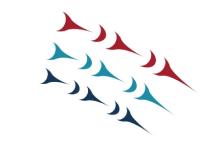Project 57 Week 46: Indigenous intellectual property rights and copyright

Indigenous Intellectual Property Rights are complex and have many different aspects. Gregory Younging ([Cree]2018) provides an overview of Indigenous Customary Laws and writes that they are “intimately intertwined and connected with TK and form what can be viewed as whole and complete, integrated, complex Indigenous knowledge systems throughout the world” (p. 116). These systems existed for hundreds of years before colonization (Younging, 2018), and are different for each community (Wemigwans [Ojibwe/Potawatomi], 2018). Often referred to as Indigenous Protocols, these Customary Laws can be found within Oral Traditions and teachings (Younging, 2018). They are dynamic, changing in response to society and community needs (Younging, 2018).
Intellectual property rights are protected by Canadian copyright law, and apply to works created by an individual (i.e., book, piece of music, choreography, photograph, etc.). This protection applies for the length of the creator, plus a set number of years after their passing. For Indigenous Traditional Knowledge the Canadian Copyright Act does not provide sufficient protection, because the knowledge is often communally held rather than individually (Wemigwans, 2018 ; Younging, 2018). This leaves Indigenous knowledge vulnerable because “Neither the common law or international treaties place Indigenous Customary Law on equal footing with other sources of law” (Younging, 2018, p. 117).
Here are some resources to learn more:
- Intellectual property rights, Indigenous Curriculum Resource Centre, SFU Library
- SFU IPinCH Traditional Knowledge fact sheet
- Protecting indigenous knowledge and heritage : a global challenge. (2000). Marie Battiste and James (Sa’ke’j) Youngblood Henderson. Purich Pub.
- Indigenous knowledge and the question of copyright, (2019). Indigenous Corporate Training blog
- Book Women Podcast, Season 1 Episode 12, Storytelling and Cultural Protocol with Joshua Littlechild (1 hour and 16 minutes) and Season 2 Episode 6, Data Sovereignty (52 minutes)
The Decolonizing the Library Working Group invites everyone to learn alongside us with Project 57. This project is a response to the TRC Call to Action 57, which calls on "federal, provincial, territorial, and municipal governments to provide education to public servants on the history of Aboriginal peoples."
For more information visit Indigenous Initiatives.

